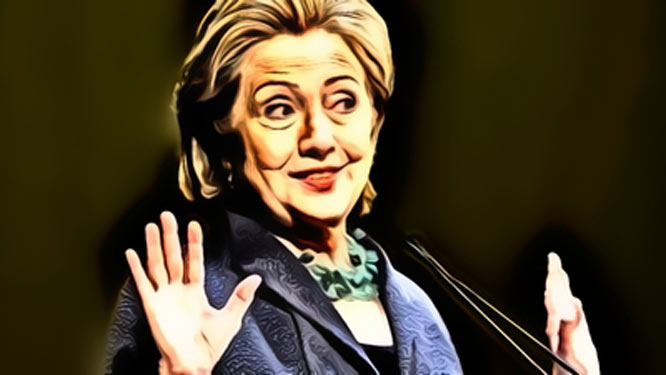 Hands off, don't shoot ... me.
Hands off, don't shoot ... me.
So far, of the declared candidates for president, the only one who voted for the Iraq War is the Democrat.
I recently made that observation on Twitter and the response was instructive. I will refrain from reprinting the more piquant language from
Well, exactly.
In case you haven't been paying attention, you might be interested to know that the Iraq War was not popular, especially among Democrats. If you had to pick a single position that allowed
It still looms large in the liberal mind: Obama frequently uses the Iraq War as proof of his foreign policy wisdom, which is otherwise unearned by evidence or argument.
For instance, humiliated of late by the rise of the Islamic State -- a group he'd glibly dismissed as a negligible "jayvee team" -- Obama now concedes it's a real problem but blames its rise entirely on the war.
"Two things: One is, ISIL is a direct outgrowth of al-Qaida in
Obama is merely the headmaster of this cheap and lazy school of thought. Blaming the Iraq War for the world's problems or using it as a way to deflect legitimate criticism of Obama's foreign policy remains the primary rhetorical gimmick for many liberals. For instance, Clinton ur-spinner
Much has been written about
In a debate with Clinton, whatever barbs Bush might hurl at the Obama-Clinton foreign policy record -- and there is no shortage of pointed ones to be thrown -- Clinton would probably be able to deflect them by dredging up "your brother's war" (even though she might wisely avoid familial guilt-by-association arguments, given her own baggage in this regard).
The weird thing is, Clinton has far more responsibility for the Iraq War than
Of course, one could argue that many would have voted for the war (probably true of Rubio, probably untrue of Paul). But that's all hypothetical. Not so with Clinton. She voted for it, defended it in the well of the
Personally, I don't think support for the war should be disqualifying. And I have no doubt that most antiwar Democrats will nonetheless work through their cognitive dissonance and vote for Clinton. They hardly put up much protest when antiwar Obama selected Clinton,
Perhaps this generational wave of post-
But Clinton's support for the war underscores a broader vulnerability. Unlike her probable opponents, she's truly a creature of yesterday's battles. From the fight over "Hillarycare," to the endless scandals of her husband's administration, to the ugly brawls over the Iraq War,
Comment by clicking here.
Jonah Goldberg is a fellow at the American Enterprise Institute and editor-at-large of National Review Online.



 Contact The Editor
Contact The Editor
 Articles By This Author
Articles By This Author